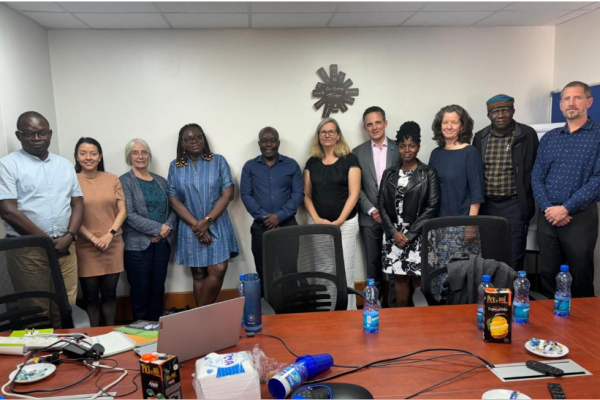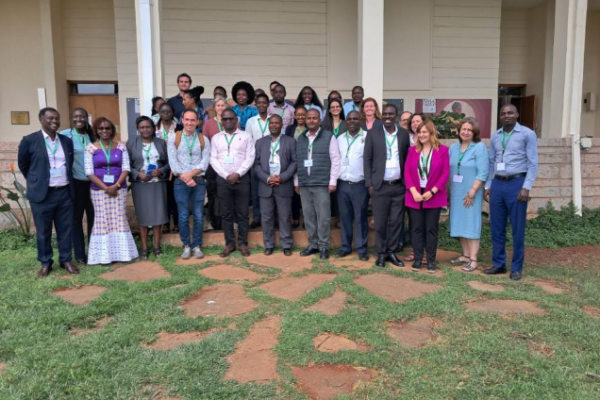Stakeholders Attending the Decarbonizing Event at the Embassy of the Netherlands in Kenya
By Washington Kanyangi and Ann Wanjiru
The climate crisis is reshaping the global healthcare landscape, and Kenya is at the forefront of efforts to build a sustainable and resilient health system. The Africa Research and Impact Network (ARIN) recently took a significant step towards a greener future by participating in high-stakes discussions focused on decarbonizing Kenya’s healthcare sector. Organized by the Embassy of the Kingdom of the Netherlands, the event brought together a multidisciplinary group of stakeholders, including policymakers, healthcare professionals, and environmental experts, to explore innovative strategies for reducing carbon emissions within the sector.
Representing ARIN, Dr. Humphrey Agevi, Mr. Washington Kanyangi, and Ms. Ann Irungu highlighted the importance of community-centred approaches in designing effective decarbonization solutions. They emphasized that engaging local communities, especially marginalized groups, ensures that solutions are practical, equitable, and sustainable. ARIN advocates for a bottom-up approach where local insights and lived experiences inform decision-making, nurturing a sense of ownership and accountability that is essential for the successful implementation of climate-resilient strategies.
The Kenyan government has demonstrated its commitment to addressing climate change’s impact on healthcare through the launch of the Climate Change and Health Strategy 2024-2029. This comprehensive plan outlines key priorities such as reducing carbon emissions, building adaptive and resilient health systems, and strengthening governance structures. As part of these efforts, Kenya is collaborating with international partners, including the Kingdom of the Netherlands, to develop green healthcare guidelines and conduct vulnerability assessments to inform targeted interventions.
Tackling challenges such as waste management, energy inefficiencies, and limited infrastructure is vital for achieving decarbonization goals in the health sector. Solutions such as adopting circular economy principles, streamlining procurement practices, and integrating clean technologies offer a path to significantly reduce environmental impacts. For instance, reusing, repairing, and recycling medical equipment can help minimize waste, while transitioning to energy-efficient appliances and clean energy sources can lower carbon emissions.
International collaborations have emerged as a cornerstone of these efforts. Partners such as the Kingdom of the Netherlands have pledged to support Kenya in enhancing its health sector’s sustainability by providing technical expertise and funding for key projects. These initiatives aim to create a greener, more equitable healthcare system that safeguards the environment while meeting the needs of communities across the country.
ARIN’s participation in these discussions reaffirms its commitment to bridging the gap between research, policy, and practice in addressing climate and health challenges. Through initiatives like these, ARIN continues to champion transformative solutions that build resilience and sustainability across Africa’s healthcare systems. More information on ARIN’s work in climate and health can be found here.
© ARIN Press




